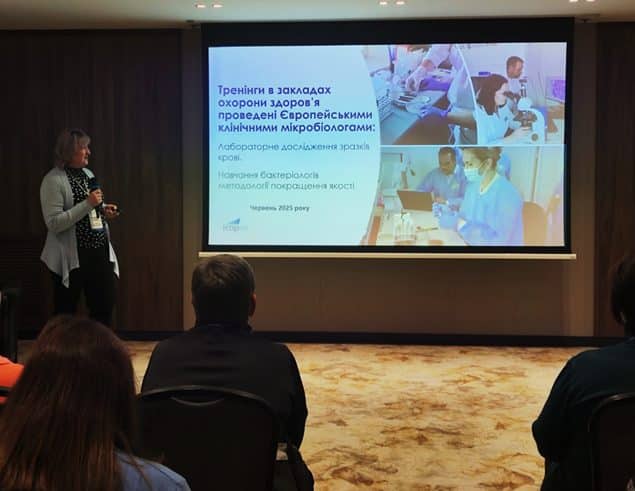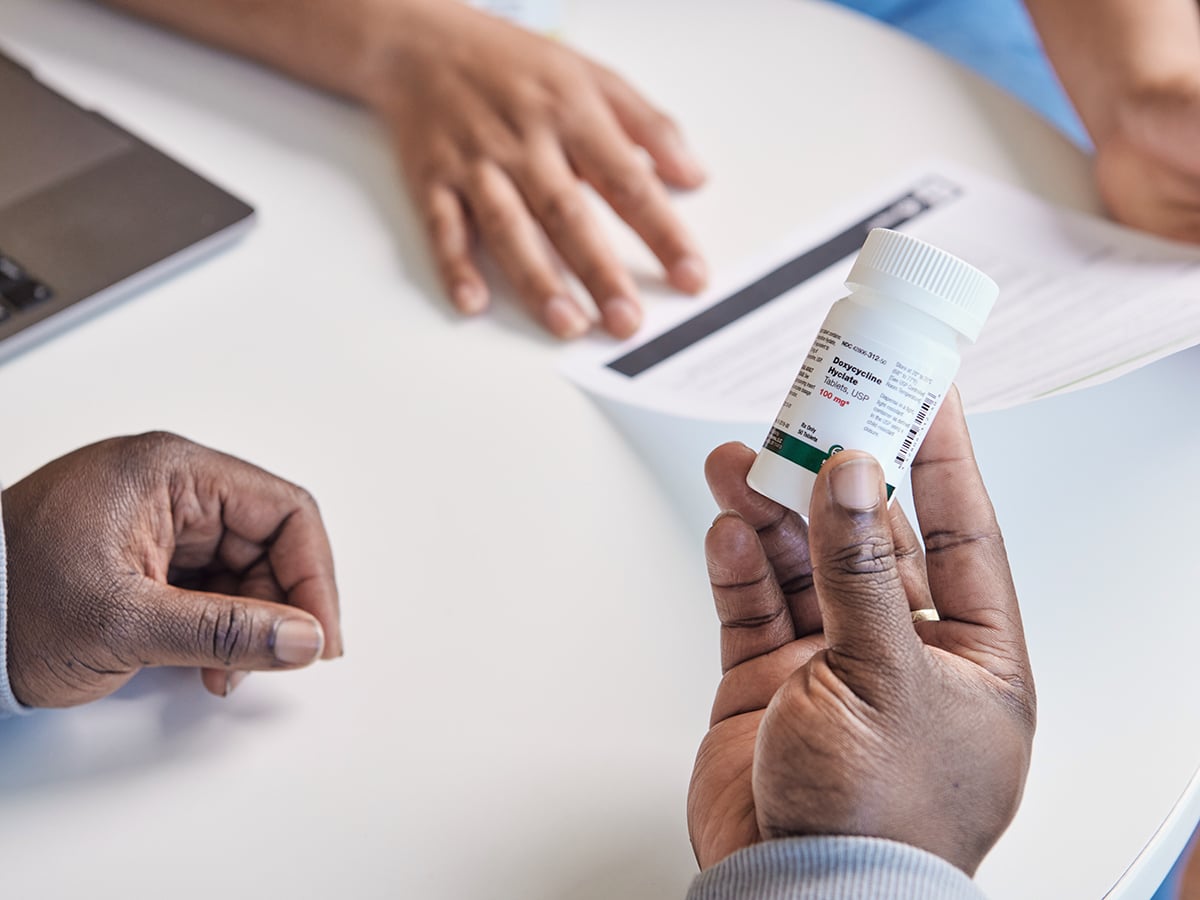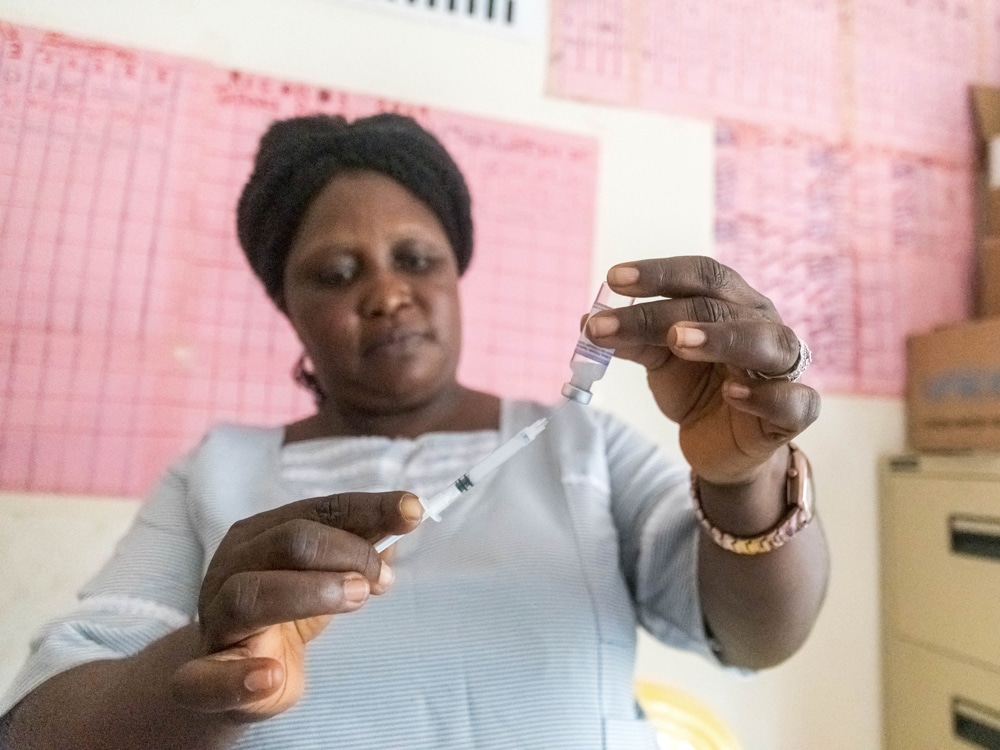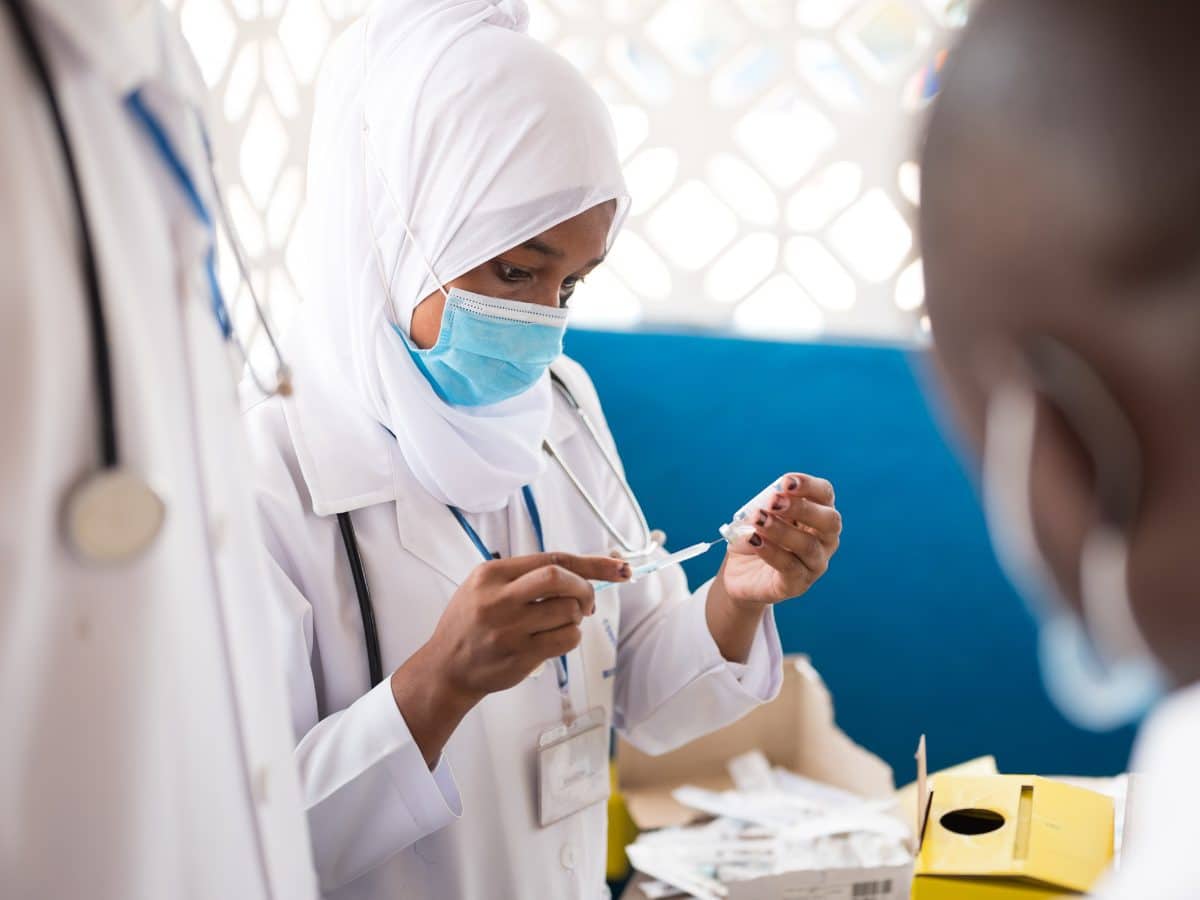-
Date: July 22-27, 2018
-
Start Time: 7:00 am
End Time: 2:00 pm
-
Location: Amsterdam, The Netherlands (RAI Amsterdam Convention Centre)

Events by Date
Sunday, July 22 (pre-conference sessions)
Monday, July 23
Tuesday, July 24
Wednesday, July 25
Thursday, July 26
Friday, July 27
See the photo highlights in our album on Facebook
Click for additional conference information
Check out ICAP’s activities at the 10th International Workshop on HIV Pediatrics in Amsterdam July 20-21
Sunday, July 22
July 22, 2018
7:00 a.m. – 6:00 p.m.
Room: G104-105
PRE–CONFERENCE
Enhancing Nursing Workforce Capacity to Achieve HIV Epidemic Control and Positive Health Outcomes – PRE–REGISTRATION REQUIRED
Hosted by the Association of Nurses in AIDS Care, this pre-conference is intended for nurses, nurse allies, other healthcare workers, policy makers, and donors. We will address the divide between frontline health workers, in particular the nursing workforce, policy makers and donors. All three stakeholders aim for epidemic control, yet do not always work in sync to achieve this goal. Unrecognized barriers to nursing workforce capacity reduce efficiency, stunt innovation, and perpetuate missed opportunities. Organized by global nursing leaders, this session will utilize a nursing perspective to examine the barriers and identify solutions to enhance antiretroviral scale up, effective prevention, better population, and individual health outcomes in both resource-rich and resource-limited settings. Through expert panels and participant involvement, we will identify recommendations and pathways to maximize the impact of nurses and other frontline health workers.
More information
Event page and registration
Add to calendar – Google – Outlook
July 22, 2018
9:00 a.m. – 10:00 a.m.
Room: Elycium 2
PRE–CONFERENCE SESSION
2018 90-90-90 Targets Workshop – Innovations to Attain 90-90-90 in High HIVPrevalence Settings – PRE–REGISTRATION REQUIRED
Moderator:
- Amanda Castel, George Washington University, Washington, DC, USA
Presenters:
- Wafaa El-Sadr, MD, MPH, MPA, ICAP at Columbia University, New York, NY, USA
- Jeffrey Joy, PhD, BC Centre for Excellence in HIV/AIDS, Vancouver, BC, Canada
More information
Event page and registration
July 22, 2018
10:15 a.m. – 11:30 a.m.
Room: Auditorium
PRE–CONFERENCE SESSION
Meeting the 90-90-90 targets: faster and better – Panel: The Global Response
Moderators:
- Wafaa El-Sadr, MD, MPH, MPA, ICAP at Columbia University
- Peter van Rooijen, ICSS
Presenters:
- Amb. Deborah Birx, MD, U.S. Global AIDS Coordinator
- Rico Gustav, ICSS, the Netherlands
- Maureen Murenga, Kenya
- Peter Sands, Director, Global Fund to Fight AIDS, TB and Malaria
- Michel Sidibe, MD, Director, UNAIDS
- Soumya Swaminathan, MD, Deputy Director-General, WHO
July 22, 2018
2:30 p.m. – 3:30 p.m.
Room: Auditorium
PRE–CONFERENCE SESSION
Meeting the 90-90-90 targets: faster and better – Controlling the epidemic: A Renewed Commitment to Primary Prevention
Moderator:
- Geoff Garnett, Bill and Melinda Gates Foundation
Presenters:
- A Call to Action: Current status of HIV prevention efforts among key populations, young adults and adolescents
Chris Beyrer, MD, Johns Hopkins University - A proposed model of differentiated service delivery for HIV prevention
Wanjiro Mukoma, LVCT, Kenya - Measuring HIV incidence among key populations, young adults and adolescents
Jessica Justman, MD, ICAP, USA - A commitment to harm reduction
Anna Dovbhak, Eurasian Harm Reduction Association (EHRA)
July 22, 2018
3:30 p.m. – 6:00 p.m.
Room: GV Session Room 2
PRE–CONFERENCE
HIV Population-based Surveys: Updates and Insights
HIV population-based surveys measure the reach and impact of HIV programs through household surveys in countries most affected by the HIV epidemic. Each survey offers household HIV counseling and testing conducted by survey staff, with return of results, and collects information about individual access to preventive care and treatment services for adults and children. The results measure national and regional progress toward UNAIDS’ 90-90-90 goals and guide policy and funding priorities.
This pre-conference focuses on recent results from PEPFAR-funded HIV population-based surveys in sub-Saharan Africa. HIV population-based surveys were implemented by ICAPat Columbia University in partnership with the U.S. Centers for Disease Control and Prevention and ministries of health. The pre-conference will examine recent survey results from West and Central Africa as well as southern Africa and will include an overview of recent innovations in HIV population surveys.
More information
Add to calendar – Google – Outlook
Back to top
Monday, July 23
July 23, 2018
8:00 a.m. – 10:00 a.m.
Room: Auditorium
SATELLITE SESSION
The Last Mile to EMTCT: Are we there yet?
Tremendous gains have been made in reducing mother-to-child HIV transmission globally, and many children are now starting life free of HIV. However, much remains to be done to achieve the ambitious goal of ending new HIV infections among children. The Start Free Stay Free AIDS Free, launched by PEPFAR and UNAIDS in 2016 adopted a superfast track agenda to meeting the remaining gaps, to change the trajectory of the epidemic in children once and for all. The session will build consensus on the key strategies that need to be adopted to get us to the ‘last mile’ by addressing the following key issues:
- Where are we now and where do we need to go?
- What are the game changers and innovations that will get us to the finish line?
- How can we better use data for quality improvement and monitoring progress?
Co-Chairs:
- Deborah Von Zinkernagel, UNAIDS, Switzerland
- Fatima Tsiouris, ICAP at Columbia University, United States
Organizers:
Convened by ICAP, UNAIDS, UNICEF, WHO and the ‘Start Free’ working group
July 23, 2018
10:15 a.m. – 12:15 p.m.
Room: G104-105
SATELLITE SESSION
Research to guide practice: Enhancing HIV/AIDS platform to address non-communicable diseases in sub-Saharan Africa
Remarkable progress made in confronting the global HIV epidemic offers a unique opportunity to address the increasing threat of non-communicable diseases (NCDs) in people living with HIV (PLHIV), especially as they age. Using a consensus process and contextual reviews to assess current evidence and experience, we will present the current evidence, gaps in knowledge and recommended research questions which, if addressed, can lead to effective integrated HIV/NCD care for PLHIV and eventually, can be scaled up to address other chronic diseases for the entire population. Two panels will give insight into how adapting and enhancing health system components, such as policy, supply chain, economics and partnerships could achieve sustainable integrated care. The panels will also present current models of integrated chronic care and prevention and highlight what research is needed for implementation and scale up to be successful.
Co-Chairs:
- Wafaa El-Sadr, Professor of Epidemiology and Professor of Medicine, College of Physicians and Surgeons, Mailman School of Public Health, Columbia University, United States
- Eric Goosby, Professor, UCSF, School of Medicine, United States
Organizer:
Linda Kupfer, NIH/FIC
Speakers:
- Wafaa El-Sadr, Professor of Epidemiology and Professor of Medicine, College of Physicians and Surgeons, Mailman School of Public Health, Columbia University, United States
- Sonak Pastikia, USAID, United States
- Miriam Rabkin, Columbia University, Mailman School of Public Health, United States
- Robert Ferris, USAID, United States
- Beatrice Matanje Mwagomba, Kamuzu Central Hospital, Lighthouse, Malawi
- Pragna Patel, Centers for Disease Control and Prevention, United States
- Gerald Yonga, University of Nairobi, Kenya
- Chris Kemp, University of Washington, United States
- Linda Kupfer, US National Institutes of Health, United States
- Deborah Von Zinkernagel, UNAIDS, Switzerland
July 23, 2018
10:15 a.m. – 12:15 p.m.
Room: Hall 11B
SATELLITE SESSION
Accelerating the development and uptake of the most needed drug formulations for children
Limited treatment options and sub-optimal formulations contribute to poor adherence and outcomes for children living with HIV and other diseases that affect the lives of children living in resource-limited settings. The Global Accelerator for Paediatric Formulations (GAP-f) aims to promote a faster, more efficient and more focused approach to paediatric formulation development. This session will present key principles for acceleration – and how these are brought together by the GAP-f – for different areas of the continuum, with a focus on: (1) prioritization and clinical research of priority formulations, (2) development and regulatory approval of paediatric drug formulations, and (3) uptake and procurement of optimal formulations for children. Panels will discuss (1) the value and opportunities for an integrated approach to paediatric medicines and (2) the business case and innovative funding. The session will end with an overview of what to watch in paediatric drug optimization.
Co-Chairs:
- Chip Lyons, Elizabeth Glaser Pediatric AIDS Foundation, United States
- Linda-Gail Bekker, International AIDS Society, South Africa
- Sébastien Morin, International AIDS Society, Switzerland
Organizer:
Global Accelerator for Paediatric Formulations (GAP-f)
Speakers:
- Sébastien Morin, International AIDS Society, Switzerland
- Sharifah Kyomukama Nalugo, Stigmaless Uganda, Uganda
- Elaine Abrams, IMPAACT Network and ICAP at Columbia University, United States
- Carlo Giaquinto, PENTA-Id Network, Italy
- Melynda Watkins, Clinton Health Access Initiative, United States
- Fernando Pascual, Medicines Patent Pool, Switzerland
- Nandita Sugandhi, ICAP at Columbia University, United States
- Jennifer Cohn, Elizabeth Glaser Pediatric AIDS Foundation, Switzerland
- Martina Penazzato, World Health Organization, Switzerland
- Paul Domanico, Clinton Health Access Initiative, United States
- Wiweka Kaszubska, Medicines for Malaria Venture, Switzerland
- Isabelle Andrieux-Meyer, Drugs for Neglected Diseases initiative, Switzerland
- George Siberry, PEPFAR, United States
- Robert Matiru, Unitaid, Switzerland
- Taryn Barker, The Children’s Investment Fund Foundation, United Kingdom
- Gottfried Hirnschall, World Health Organization, Switzerland
July 23, 2018
12:30 p.m. – 2:30 p.m.
Room: E102
SATELLITE SESSION
HIV prevention for women
For more than 30 years, the global HIV epidemic has affected families, communities and countries alike. Women of all ages account for nearly half of the 36 million people living with HIV (PLHIV) worldwide. In sub-Saharan Africa, more than 60 percent of all PLHIVare women, and this population continues to rise rapidly. Young women in southern Africa between ages 14 to 24 are at highest risk of and most vulnerable to HIV infection. Prevention of HIV infection among women is an urgent global priority and the HPTN is leading a vibrant research agenda evaluating ways to protect women worldwide from the disease. Presentations will focus on studies conducted in HIV infected and uninfected women to evaluate interventions that may prevent HIV infection.
Co-Chairs:
- Myron S. Cohen, MD, HPTN, United States
- Wafaa El-Sadr, MD, MPH, MPA, HPTN, United States
Organizer:
HIV Prevention Trials Network (HPTN)
Speakers:
- Connie Celum, MD, MPH, HPTN, United States
- Kwame Shanaube, MD, PhD, HPTN, Zambia
- Audrey Pettifor, PhD, MPH, HPTN, United States
- Sinead Delany-Moretlwe, MBBCh, PhD, DTM&H, HPTN, South Africa
July 23, 2018
12:30 p.m. – 2:30 p.m.
Room: Hall 10
SATELLITE SESSION
What’s new in WHO Treatment guidelines: the role of DTG in first- and second-line and new directions in early infant diagnosis
In this Satellite, WHO will present highlights from recent updates to the Consolidated ARV guidelines. New directions on the role of dolutegravir (DTG) based regimens in first and second line treatment, and in post-exposure prophylaxis (PEP), as well as, directions to improve early infant diagnosis will be presented. Country approaches to the implementation of dolutegravir transition and data needs to help better understand the signal of neural tube defect (NTD) risk will be explored. A panel with representation from Ministries of Health, researchers, implementers and civil society will review the implications of these new directions for HIV treatment programmes. This session will be of interest to programme managers, researchers, implementers, clinicians and civil society. Lunch will be served prior to the satellite.
Co-Chairs:
- Gottfried Hirnschall, MD, MPH, World Health Organization, Geneva
- Elaine Abrams, MD, ICAP at Columbia University, United States
Organizer:
World Health Organization (WHO)
5:00 p.m. – 7:00 p.m.
Room: Emerald Room
SATELLITE SESSION
Differentiated service delivery 2018: Innovations, best practices, and lessons learned
New global guidelines have markedly increased the number of people living with HIV(PLHIV) eligible for treatment, straining the capacity of health systems in low-resource settings. In response, differentiated service delivery (DSD) has been developed as a way to improve the quality and efficiency of HIV programs. Moving away from a “one size fits all” model, DSD tailors HIV services for diverse groups of PLHIV while maintaining the principles of the public health approach.
ICAP at Columbia University convenes the 10-country HIV Coverage, Quality and Impact Network (CQUIN), which fosters south-to-south exchange and joint learning directed at scaling up high quality DSD. Building on the lessons learned from CQUIN, this satellite will convene Ministries of Health, civil society, academics, and other implementers to discuss cutting edge issues related to DSD scale-up.
Co-Chairs:
- Wafaa M. El-Sadr, ICAP at Columbia University, United States
- Peter O. Preko, ICAP at Columbia University, Swaziland
- Wame Mosime, International Treatment Preparedness Coalition, Botswana
Organizer:
ICAP at Columbia University
Speakers:
- Wafaa M. El-Sadr, ICAP at Columbia University, United States
- Peter O. Preko, ICAP at Columbia University, Swaziland
- Wame Mosime, International Treatment Preparedness Coalition, Botswana
- Tsitsi Apollo, Zimbabwe Ministry of Health and Child Welfare, Zimbabwe
- Tiffany Harris, ICAP at Columbia University, United States
- Ruanne Barnabas, RTI, United States
- Pascale Ondoa, African Society for Laboratory Medicine (ASLM), Netherlands
- Samson Kironde, URC, Uganda
- Elaine Abrams, ICAP at Columbia University, United States
More information
Add to calendar – Google – Outlook
Back to top
Tuesday, July 24
July 24, 2018
10:00 a.m. – 6:30 p.m. (author presentations 12:30 p.m. – 2:30 p.m.)
Room: Poster Exhibition Area (Hall 1, Ground Level)
POSTER EXHIBITIONS
- I-Surge: Scale-up of HIV programs in Zambezia Province, Mozambique
Presented by: Susan Michaels-Strasser
- Three-fold Increases in Population-level HIV Viral-load Suppression among Men and Young Adults in a Mixed Urban-rural Tanzania Lake-zone Community: Intervention Outcomes of the Bukoba Combination Prevention Evaluation (BCPE)
Presented by: Claire Steiner
- Depressive symptoms, substance use and sexual risk behaviors among black men who have sex with men (MSM)
Presented by: Frieda S. Winterhalter | Poster ID: TUPEC242 | Abstract
- Progress towards achieving HIV epidemic control among PWID in Myanmar: Findings from the 2017-18 bio-behavioral survey among PWID
Presented by: Roberta Sutton | Poster ID: LBPEC027 | Abstract
July 24, 2018
8:45 a.m. – 10:30 a.m.
Room: Hall 12
PLENARY SESSION
Breaking barriers of inequity in the HIV response
Presenters:
- Stefan Baral, Johns Hopkins School of Public Health, United States
- Anna Deryabina, ICAP at Columbia University, Kazakhstan
- Olena Stryzhak, Positive Women, Ukraine
- Maneesh Gobin, Attorney General and Minister of Justice, Human Rights and Institutional Reforms, Mauritius
July 24, 2018
1:00 p.m. – 2:00 p.m.
Room: E102
ORAL POSTER DISCUSSION SESSION
Geomapping to enhance equitable access
Co-Chairs:
- Frank Tanser, University of KwaZulu-Natal, South Africa
- Suzue Saito, ICAP Columbia University, United States
Presenters:
- Anthony Waruru, University of Bergen, Norway
- Nathan Heard, U.S. Department of State, United States
- Purvi Shah, FHI 360, India
- Sarah J. Girdwood, Health Economics and Epidemiology Research Office, South Africa
- Micah Domingo, Callen-Lorde Community Health Center, United States
- Kija Nyalali, IntraHealth International, United Republic of Tanzania
July 24, 2018
2:30 p.m. – 4:00 p.m.
Room: Elicium 1
ORAL ABSTRACT SESSION
Forging new pathways towards HIV elimination
Co-Chairs:
- Andrew Grulich, University of New South Wales, Australia
- Marie Marcelle Deschamps, GHESKIO Centers, Haiti
Presenters:
- 2:45 p.m. – Population Viral Load and Recent HIV-1 Infections: Findings from Population-based HIV Impact Assessments (PHIAs) in Zimbabwe, Malawi, and Zambia
Presented by: Mansoor Farahani | Poster ID: TUAC0102 | Abstract
Wednesday, July 25
July 25, 2018
10:00 a.m. – 6:30 p.m. (author presentations 12:30 p.m. – 2:30 p.m.)
Room: Poster Exhibition Area (Hall 1, Ground Level)
POSTER EXHIBITIONS
- 12 month retention rates among ART patients in ICAP supported HIV care and treatment clinics in Cote d’Ivoire and Swaziland
Presented by: Tiffany Harris | Poster ID: WEPEE775 | Abstract
- What about the men?: Adherence patterns among patients enrolled in comprehensive HIV Care programs in Kinshasa and Haut-Katanga Provinces in the Democratic Republic of Congo
Presented by: Sarina Dane | Poster ID: WEPEE706 | Abstract
- Community ART distribution centers (PODI) as a differentiated service delivery measure in DRC
Presented by: Ayan Jha | Poster ID: WEPEE735 | Abstract
- Lack of effective opioid dependence treatment leads to high rates of treatment discontinuation and mortality among patients initiated on antiretroviral therapy in Kazakhstan
Presented by: Anna Deryabina | Poster ID: WEPEB138 | Abstract
- Analysis and proposals of strategies to reduce the turnaround time (TAT) of viral load samples in Nampula Province
Presented by: Januario Reis | Poster ID: WEPEE688 | Abstract
- HIV testing, retesting, and seroconversion among pregnant women attending antenatal and maternity services in Manzini Swaziland
Presented by: Altaye Kidane | Poster ID: WEPEB119 | Abstract
- Impact of Health Behavior Campaigns on HIV-Risk Behaviors in Swaziland
Presented by: Ivy Mushamiri | Poster ID: WEPEC307 | Abstract
- Bringing Voluntary Male Medical Circumcision (VMMC) services to the community: VMMC mobile clinic campaigns on the islands of Lake Victoria in Tanzania
Presented by: Juliana Soares Linn | Poster ID: WEPEC252 | Abstract
July 25, 2018
7:00 a.m. – 8:30 a.m.
Room: E102
SATELLITE SESSION
Accelerating Children’s HIV/AIDS Treatment (ACT): Post-Program Learning & Knowledge
Organizers:
Baylor College of Medicine Children’s Foundation Malawi; USAID Office of HIV/AIDS; Office of the U.S. Global AIDS Coordinator & Health Diplomacy
Co-chairs and Speakers:
- Saeed Ahmed
- Anouk Amzel
- Anna Grimsrud
- Kate Harrison
- Lauren Marks
- Surbhi Modi
- Suzue Saito
- George Siberry
- Heather Watts
More information
View event “Save the Date”
July 25, 2018
11:00 a.m. – 12:30 p.m.
Room: Hall 11A
ORAL ABSTRACT SESSION
Reaching men: Yes we can!
Chair:
- Helen Ayles, Zambart, Zimbabwe
Presenters:
- 11:00 a.m. – Multiple disease screenin







